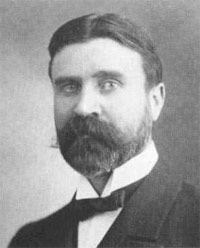The principle of palliation is here recognized and a few illustrations given of its legitimate application in one class of cases. If it is noted that all these illustrative case are characterized by *shock or collapse, it will be seen that the principle has a somewhat wider application than appears on first consideration of the cases enumerated by Hahnemann. It may fairly be extended, for example, to cover, certain cases where sudden and unendurable pain occurs and collapse is threatened by such semi-mechanical conditions as the presence or passage of renal calculi and gravel, or biliary concretions. In exceptional cases of these and similar conditions, analgesics may be used temporarily as anaesthetics are used in surgical and dental operations, and for the same purpose, that is to prevent or relieve shock.
When all has been said and the scope of homoeopathy has been defined as clearly as possible it is evident that there is a border-land between homoeopathy and its related sciences around which it is impossible to draw sharp lines of demarcation. In this region each physician must be governed by his own individual judgment and the circumstances of the case. It follows that there will always be differences of opinion between individual physicians under such circumstances. The physician who is imbued with the spirit of homoeopathy endeavors always to keep his mind open and free from prejudice. While striving always to perfect his knowledge of homoeopathic technic in order that he may meet any emergency and extend the borders of his art to the farthest limits, he never forgets that the necessities and the welfare of his patient are first. He will not allow either pride or prejudice to obscure his sense of his own limitations, nor those of his art. Circumstances sometimes arise when the strongest man and ablest prescriber, by reason of the great moral pressure brought to bear upon him by the peculiarities of his patient of the environment, or from lack of time, will be compelled to tide over a period of unendurable suffering by the use of analgesics, or of some other measure to meet extraordinary emergencies. He does this as a charitable concession to the weakness of human nature, his own perhaps as well as others, without in the least degree lowering his standards, or bringing discredit upon himself or his art. He does this knowing, perhaps, that if he had time and the circumstances permitted, he could do better. But time and circumstances are sometimes, at least temporarily, beyond his control. It is possible to violate the *spirit by adhering too closely to the *letter of the law. Victory is sometimes gained by appearing to yield, which is quite in accord with the principle of *Similia, a sort of moral homoeopathy. A strategic retreat to another line of defense in war often gives a stronger base from which to lunch a successful attack.
In cases of renal or hepatic colic, for example; If the physician is firm and calm as well as skilful, and possesses the entire confidence of the patient and his family and friends, he may be able to alleviate the agonizing pain and carry such cases through to a happy termination by the use of homoeopathic remedies alone. It has often been done and when possible is the ideal way.
But the physician may have been newly called to the case or family and not have had time to gain their complete confidence by the results of his work and teaching.Patients have to be educated in the principles and methods of homoeopathy by discussion, instruction and demonstration, and this requires time. When they have felt or witnessed the results of competent homoeopathic prescribing they acquire confidence. Some become enthusiastic advocates and propagandists of homoeopathy, and are always ready to uphold and cooperate with their physician in demonstrating its methods even in the gravest emergencies. Others are interested only in quick results, caring little or nothing about how they are obtained. the latter are very difficult to hold in such cases and some of them will not continue with the conscientious homoeopathician, no matter what he does. Between these two classes exists a third, the members of which can be interested in homoeopathy to a degree that will enable the practitioner to hold them as patients and retain their confidence and cooperation in homoeopathic treatment in all but extreme cases. It is in such cases that the pressure referred to will be brought to bear upon him, and he may be compelled to resort temporarily to palliation to gain time and strengthen his position. Unless he can do this there is but one honorable course left for him to pursue-resign the case and withdraw. In pursuing either of those courses the conscientious practitioner is beyond the criticism of all fair- minded persons. But he is always open and frequently subjected to the attacks of prejudice, bigotry and jealousy, and to these the best defense is silence and a clear conscience.

